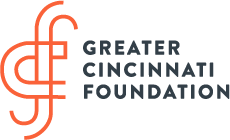Event Tickets: Beware of the Split
As community events start ramping up this fall and your clients attend fundraising events for their favorite charities, it is important to be clear on IRS rules for giving to events through donor advised funds (DAFs).
Your client may ask: “We wanted to buy a table at the fall gala through our DAF, but Greater Cincinnati Foundation said that’s not possible and suggested alternate ways of meeting our goals. Why is that?”
As you may know, the IRS frowns on DAFs paying for any part of an event ticket to a charitable fundraiser–even if a portion of the ticket is tax-deductible. Big picture, the IRS is enforcing the longstanding tax principle that a taxpayer cannot deduct value given to a charity that is effectively transferred back to the taxpayer. At a typical event, your client may receive food, drinks, entertainment and other benefits.
The IRS’s commentary on this topic is not new; IRS Notice 2017-73 addresses a concept known as “bifurcated gifts,” meaning a portion of a gift is tax-deductible and the other is not. Moreover, the IRS has taken the position that Internal Revenue Code Section 4967 prohibits donor advised grants from conferring “more than incidental” benefits to DAF holders. In its 2017 Notice, the IRS expresses its opinion that grants from DAFs that enable attendance or participation in a charity-sponsored event (such as buying tickets or a table) do indeed provide more than just an incidental benefit, even if the taxpayer pays out-of-pocket for the non-deductible portion of the ticket.
Penalties certainly are not negligible and include excise taxes imposed on the donor advisor and potential penalties for DAF programs that knowingly authorize such payments.
GCF understands the rules inside and out, and we are here to help your clients stay compliant and achieve their charitable goals. In situations like this, we help your clients structure gifts from their DAFs to support general event sponsorships if the client declines all benefits. We can also talk with your client about how to participate in rallies for outright donations during a fundraising event and ensure that the client is not receiving any benefit in return.

